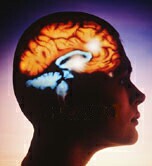Model explains influence of inadequate levels of vitamin D, omega-3 fatty acids on brain dysfunction
FRIDAY, March 6, 2015 (HealthDay News) — A model has been proposed to explain the influence of inadequate vitamin D and omega-3 fatty acids on brain dysfunction via serotonin levels, according to a review published online Feb. 24 in The FASEB Journal.
Rhonda P. Patrick, Ph.D., and Bruce N. Ames, Ph.D., from the Children’s Hospital Oakland Research Institute in California, examined mechanisms to explain why omega-3 fatty acid and vitamin D supplementation improves cognitive function and behavior in attention-deficit/hyperactivity disorder, bipolar disorder, schizophrenia, and impulsive behavior.
The researchers note that brain serotonin is synthesized from tryptophan by tryptophan hydroxylase 2, which is transcriptionally activated by vitamin D, and that given the prevalence of inadequate levels of vitamin D and omega-3 fatty acids, brain serotonin synthesis may not be optimal. They propose mechanisms by which eicosapentaenoic acid (EPA) and docosahexaenoic acid (DHA) increase serotonin release from presynaptic neurons and influence serotonin receptor action, respectively, by reducing E2 series prostaglandins and increasing cell membrane fluidity in postsynaptic neurons. The model proposed explains how inadequate levels of vitamin D, EPA, or DHA, together with genetic factors and at key developmental periods, could trigger dysfunctional serotonin activation and function, contributing to neuropsychiatric disorders and depression.
“This model suggests that optimizing vitamin D and marine omega-3 fatty acid intake may help prevent and modulate the severity of brain dysfunction,” the authors write.
Copyright © 2015 HealthDay. All rights reserved.








